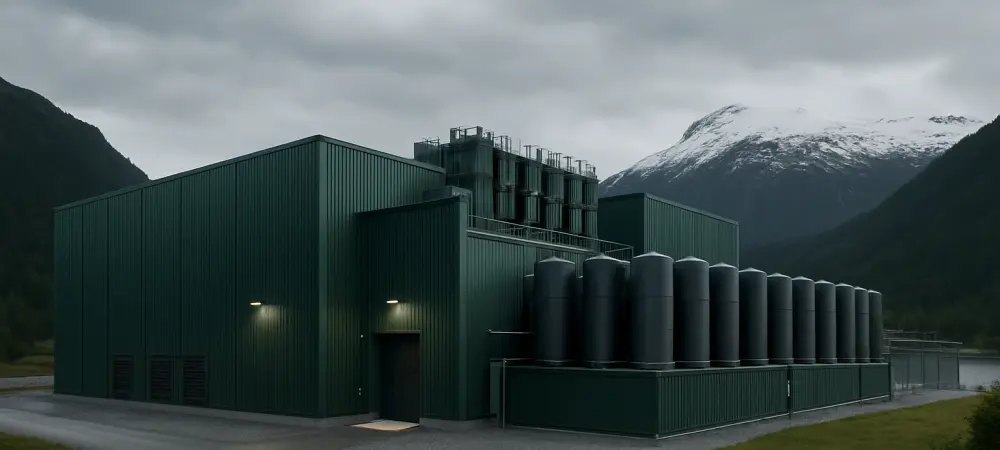Setting the Stage for Digital and Sustainable Growth
In an era where data consumption is skyrocketing due to artificial intelligence, cloud computing, and streaming services, the Nordic region stands out as a critical hub for digital infrastructure. The demand for data centers has surged, with projections estimating a compound annual growth rate of over 10% in capacity needs through 2027. Amid this backdrop, GlobalConnect, a leading Nordic fiber broadband and data center provider, has unveiled a transformative expansion in southern Stockholm, Sweden. This move not only addresses the pressing need for more capacity but also pioneers sustainability through innovative green technology. This analysis delves into the market dynamics driving such expansions, the integration of eco-friendly solutions, and the broader implications for the data center industry in the Nordics.
Unpacking Market Trends and Strategic Expansions
Surging Demand Fuels Data Center Growth
The Nordic data center market is experiencing unprecedented growth, driven by the region’s favorable climate for cooling and abundant access to renewable energy. With digital transformation accelerating across industries, the need for robust infrastructure to support data-intensive applications has become paramount. GlobalConnect’s expansion in Stockholm, adding 600 square meters of space and 1.2 megawatts of capacity, exemplifies this trend. Set to boost the facility’s total capacity by 80% to 2.7 megawatts by next year, the project aligns with market forecasts predicting a sharp rise in rack space demand. This strategic scaling positions the company to capture a significant share of the growing market, though it must navigate risks such as potential overcapacity if demand projections falter.
Competitive Landscape in the Nordic Region
Competition in the Nordic data center sector is intensifying as global players and regional firms vie for dominance. GlobalConnect, with its extensive 244,000-kilometer fiber network spanning Denmark, Norway, Sweden, Germany, and Finland, holds a strong foothold with 17 facilities covering 35,000 square meters. Its focus on Stockholm, where it operates four sites, reflects a calculated move to leverage the city’s status as a digital hub. The company’s growth trajectory, bolstered by key mergers and investments since 2016, underscores its adaptability in a crowded market. However, challenges such as high infrastructure costs and regulatory pressures on energy consumption remain critical hurdles for all players in this space.
Investment Signals and Market Valuation
Investor confidence in the Nordic data center market is evident, with significant capital flowing into infrastructure projects. GlobalConnect’s market position has drawn attention, with reports suggesting a potential valuation of around €8 billion if a sale were to occur. This figure highlights the perceived long-term value of companies that balance scalability with innovation. The involvement of major stakeholders like EQT Infrastructure as a majority shareholder since 2016, alongside newer minority investors, points to robust financial backing. Such dynamics indicate that the market is ripe for consolidation, with mergers and acquisitions likely to shape the competitive landscape in the coming years.
Green Tech as a Market Differentiator
Waste Heat Recycling: A Sustainable Edge
A defining feature of GlobalConnect’s Stockholm project is its integration with the local district heating network managed by Exergi. By channeling waste heat from the data center to warm approximately 2,700 nearby homes via a heat pump system, the initiative sets a new benchmark for sustainability. This approach not only reduces energy waste compared to conventional cooling methods but also delivers tangible community benefits. While promising, the model faces technical challenges, including ensuring consistent heat output and managing integration costs. Nevertheless, it positions GlobalConnect as a frontrunner in adopting green tech, potentially influencing market standards across Europe.
Regional Advantages and Industry Adoption
The Nordic region’s cool climate and access to renewable energy provide a natural advantage for data center operations, reducing cooling costs compared to warmer markets. Yet, the adoption of sustainable practices like waste heat recycling remains uneven, often hindered by infrastructure limitations or lack of awareness. Industry insights suggest that while the environmental benefits are clear, upfront investments and regulatory complexities deter widespread implementation. GlobalConnect’s project serves as a case study in overcoming these barriers, demonstrating how regional strengths can be paired with innovative solutions to meet both market and societal needs.
Future Projections for Green Data Centers
Looking ahead, sustainability is poised to become a core driver of market differentiation in the data center industry. With regulatory frameworks tightening around carbon emissions, companies face increasing pressure to adopt eco-friendly practices. Analysts predict that by 2027, over half of new data center projects in the Nordics will incorporate green technologies as a standard feature. GlobalConnect’s early mover advantage in this space could yield long-term cost savings and brand equity, though it must stay agile amid evolving energy policies and technological advancements. The broader market is likely to see a shift toward partnerships with local utilities, mirroring the Stockholm model.
Strategic Implications and Market Outlook
Reflecting on the analysis, it is evident that GlobalConnect’s Stockholm expansion captures a pivotal moment in the Nordic data center market, where capacity growth and sustainability converge. The project highlights the dual imperatives of meeting soaring data demands and addressing environmental concerns through innovative solutions like waste heat recycling. For industry stakeholders, the takeaway is clear: investing in green tech offers not just compliance with emerging regulations but also a competitive edge. Moving forward, companies should prioritize strategic partnerships with local energy providers to replicate such models. Additionally, policymakers could consider incentives to accelerate the adoption of sustainable practices, ensuring that digital progress aligns with ecological goals for a balanced future.

